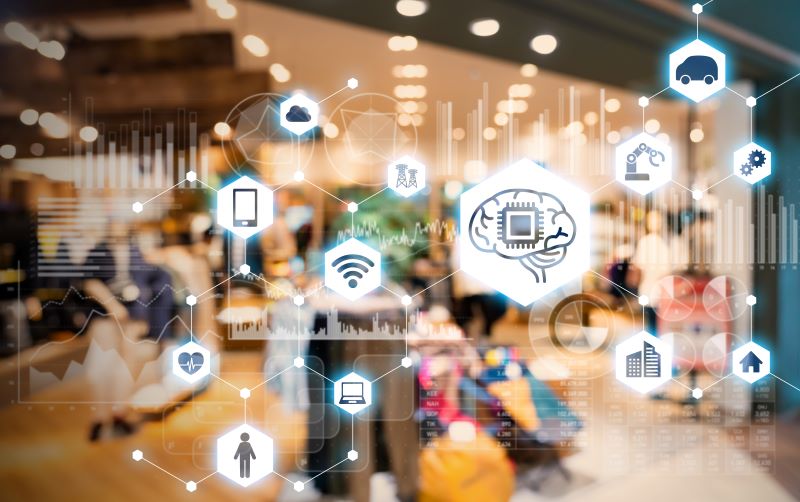
Amazon has already sold 25 million Alexa speakers, and Google Assistant is now available on 400 million devices, as reported by Harvard Business Review. Game on.
Imagine a world coming to a galaxy near you very soon: You ask Alexa, "Which commercial real estate agent in Peoria has the highest satisfaction rating?" Alexa directs you to a website. By virtue of your address and company name you are routed to a salesperson who specializes in your sector: computer software. You receive a welcome packet based on your click history and suited to the nature of your inquiry. You're enrolled in a drip campaign personally tailored to you. Then the salesperson calls, with a head start on exactly what you're looking for.
These all represent technologies commercially available right now. While musing about how cute today's digital assistants are, the premise of artificial intelligence goes much deeper- offering the promise of profound disruption in many industries.
Here are eight ways artificial intelligence is already being utilized today:
1. AI is disrupting marketing as we know it.
AI is facilitating a more scientific client acquisition ecosystem. Not only does AI enable better prospect targeting, but consumers and B2B buyers are using it to evaluate providers based on ratings (for performance and relevance), pricing, location and more. AI filters the noise of subjectivity about brands, and mitigates Google AdWords campaigns awarded to the highest bidder.
It will become a battle of customer AI versus vendor AI. As we feed the beast, machine learning will only get smarter. Loyalty will be easier to measure and the ability to calculate true lifetime value achieved. AI's deployment in social media is endless, as evidenced by the Cambridge Analytica scandal. AI will be used for good, and it will also be used for evil.
2. Better recruiting
Recruiting has become a bear, in part due to the inefficiency of job boards and the arduous task of matching candidates and jobs. AI is enabling better matching of candidates to truly relevant work opportunities, allowing employers to score candidates in more meaningful ways. For example, companies are repurposing candidate resumes and applying them to new jobs once they become available.
3. Better service
According to Gartner and AI News, 40 percent of customer service interactions will have an AI component by 2019. In other words, service providers will have access to better data in serving you. Providers will cut costs, as Gartner predicts a 10 percent decline in customer service agents by next year.
Use of bots and the like is helping companies expand to 24/7 service.
4. Better services
With predictive modeling, companies are using AI to tailor offers to customer needs. Providers know more about a customer's preferences, including method of payment and fulfillment requirements and can create digital offers to suit. Instead of products being customized, entire offers will be customized.
Service businesses like call centers are using AI for segmentation. AI helps call centers route calls based on probability of success. Collection agencies with streams of customer data use AI to segment customers based on variables such as ability and willingness to pay.
Machines are more capable of making such determinations based on variables ranging from consumers' credit history to their behavior. There are even technologies emerging that allow credit providers to interview potential debtors and recognize facial patterns that suggest they may be lying and unworthy of a loan.
5. Workplace productivity
Amazon is using AI to track movements of its warehouse workers. Humanyze sells smart technologies embedded in wrist devices that track how office workers spend their time in interactions with fellow employees. Infosys is utilizing AI to determine workers' pay based on actual productivity.
6. Better security
Perhaps the most immediate impact of AI has been in home security, and that will soon translate into business security as companies analyze movement within their offices. Companies are using AI in fraud detection, including speech and video recognition to protect identities.
7. AI for better inventory
Today, physical products including inventory are managed by humans. Systems are now being deployed to help buyers better quantify numerous variables from prior purchasing history, seasonality, weather and demand based on nuances in promotions. Look for ways to leverage AI to create better reports for those managing inventory.
8. AI as a business model
According to The Economist, 2017 brought $22 billion in AI-related acquisitions, 26 times that of 2015. Businesses are finding ways to scale using bots and then mining customer data, which is often more valuable than the underlying business itself.
The market for AI hardware and software services is estimated to be $58 billion by 2019. Finding ways to embed AI within your business solutions makes your company infinitely more valuable.